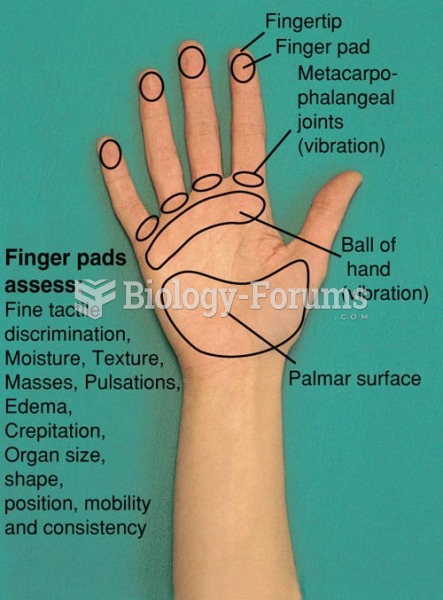|
|
|
Alzheimer's disease affects only about 10% of people older than 65 years of age. Most forms of decreased mental function and dementia are caused by disuse (letting the mind get lazy).
The horizontal fraction bar was introduced by the Arabs.
Anti-aging claims should not ever be believed. There is no supplement, medication, or any other substance that has been proven to slow or stop the aging process.
Blastomycosis is often misdiagnosed, resulting in tragic outcomes. It is caused by a fungus living in moist soil, in wooded areas of the United States and Canada. If inhaled, the fungus can cause mild breathing problems that may worsen and cause serious illness and even death.
Russia has the highest death rate from cardiovascular disease followed by the Ukraine, Romania, Hungary, and Poland.
 While numerous subspecies of the jaguar have been recognized, recent research suggests just three. G
While numerous subspecies of the jaguar have been recognized, recent research suggests just three. G
 Data from more than 22,000 men over the age of 40, showing the relationship between birth weight and ...
Data from more than 22,000 men over the age of 40, showing the relationship between birth weight and ...





